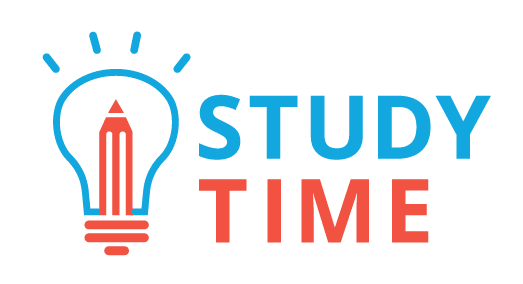The human brain is a mysterious beast. To some students, it’s a vital organ that helps them think through complex questions to get E8s on every exam question they tackle. For others, it’s little more than a complicated inconvenience, responsible for making you overthink that thing your friend said two weeks ago.

No matter what you think about your brain, the bottom line is this – our brains can help us out a lot when it comes to school … most of the time. If you’ve ever sat in an exam and gone crazy trying to think of that one key definition you need, it can be hard to feel like your brain is really on your side.
To get our brains working for us rather than against us, we need to understand what’s actually going on, and how much we can really cram in there. This article will run you through exactly why you should care about befriending your brain, the different types of memory we have to consider, and what we can do to make sure we remember all the important stuff for our exams.
Let’s crack on with it!

How much can we fit in our brains?
This is a really good question, and there’s only one real answer – it depends.
For example, if we’re cramming the night before our exam, our memory isn’t going to be working at its best. We’ll be stressed, sleep-deprived, and we’re not giving ourselves enough time to actually process the information and shift it to our long term memory. (More on short and long term memory later.)
Usually, this cram-style of learning means we won’t have enough of a chance to remember what we’re working on, and it’ll be half gone by the morning.
However, if we’re revising content for the fourth time this week in the leadup to our exam, after keeping a healthy diet and sleep schedule, things will be looking much more promising. Because we’ve worked through the same content multiple times, all the while looking after ourselves, we’ll be happily committing this content to our long term memory. So, when we get to our final exams, we’ll be able to recall all those concepts without even breaking a sweat.
Basically, if we treat our brain right, there’s no real limit as to how much we can get in there.
At least … kind of.
If you want to get technical about it, the scientists out there reckon that we’ve got an entire computer stored inside our heads. More specifically, our brain capacity clocks in at around 2.5 petabytes (or about 2.5 million gigabytes).
We probably can’t really fill all this space, either, because our brain loves to prune out unnecessary information to make room for new concepts.

If you’re interested in how the brain is structured to remember everything it needs and nothing it doesn’t, check out this StudyTime article on neuroplasticity!
Alright, cool, so our brain is like a computer with a boat-load of storage. Why can’t we remember literally everything important we’ve ever read?
Well, by itself, a computer is not a genius, it’s just a hunk of expensive metal that has the potential for greatness. A computer needs someone to train it, to teach it everything it needs to know. Only after it’s learned everything can we access that information whenever we’d like.
That’s a pretty good analogy for what’s going on in our brains. We’ve all got the potential to have a supercomputer stowed away up there, but it’s all down to us to train it.
Why should we bother training our brains?
As NCEA students, the answer is glaringly simple – exams!
When we get into that exam room, the goal is to be able to pull relevant information out of our heads quickly and accurately. Not only do we want to remember all of the basic definitions and concepts, but we also need to know how these concepts link together, and how they relate to other stuff outside of the exam.

Without teaching our brains everything they need to know in advance, we’ll be in big trouble. We’ll be struggling to remember all of the key information we need to get achieved, and we’ll be majorly slowed down. Working slowly is dangerous, especially if we’ve got three papers to tackle in three hours – we don’t want to run out of time!

Long story short, improving memory is the key to majorly improving exam results. But, to understand how we can actually improve our memory, we first need to understand what types of memory we have, and when we use them.
Different types of memory
There are three forms of memory that we have at our disposal. These different types are used to store information when we’re doing different activities, and they each have their own benefits.
Short term memory
To get straight to the point, short term memory is a blessing and a curse. Basically, our short term memory is where we temporarily store information when we’re being made aware of something in a fleeting way.
For instance, when we’re reading over the notes on the whiteboard at school before we jot it down, we’re putting all of it into our short term memory. Generally, things get stored here for a matter of seconds, so nothing really hangs around!

Short term memory can be great!
When we’re learning something for the first time, especially something that’s complex, our short term memory can be amazing. It helps us to be aware of lots of different concepts simultaneously, even if we aren’t totally confident with these ideas yet. By bearing lots of new concepts in mind at once, we’re able to gradually piece things together to make the big-picture make sense.
It’s also really useful when we’re learning in class. When your teacher says a phrase that makes total sense in your mind, you can quickly tuck it into your short term memory to preserve the perfect wording that your teacher used while you scribble it into your notes.
Not to mention, we can’t get anything into our long term memory without letting it pass through the short term section first. It’s pretty dang important.
Short term memory can also be seriously misleading.
The worst part of it all is that short term memory gives us a false sense of security. For the most part, we can’t tell the difference between information that’s just visiting our short term memory, versus something that’s deeply lodged in our long term memory. They just feel the same.
So, when we hear that perfectly phrased sentence from our teacher, we can fall into a bit of a trap. We might just tell ourselves, “Oh, that makes sense, I’ll remember that!”, because we can think it through just fine in our brain, and it feels like it’s in there.
But remember, short term memory only lasts for seconds!
If we were to try and remember this sentence anywhere from 10 minutes to 10 hours into the future, we’ll likely draw a total blank. That’s because your short term memory is like a bad boyfriend, and it basically stops caring after a little while. Say goodbye to your perfect sentence, because your short term memory is going to move onto remembering something else.

Guess they don’t call it short term for nothing, eh?
Working memory
Working memory is basically like the cool cousin of short term memory. While short term memory is that seconds-long recollection of simple 2-dimensional facts, working memory is a little more intelligent. Information stays around for minutes in our working memory, and it comes into play when we’re working on more complex ideas with lots of moving parts, so to speak.
For example, if we’re in class working on understanding an excellence-level past exam question, there’ll be a lot going on. We’ll be pulling together different concepts to build up one robust overall picture, and we’ll be structuring all of these ideas together.
Working memory is responsible for linking these ideas and organising them into a coherent string of consciousness.
Sure, we might not remember how to do the same excellence question in a few weeks, or even in a few days. The point is, though, we need to really engage our working memory to actually get to the point where we can start memorising this information for when we’re in our exams. This brings us to our next point:
Long term memory
Here we are, at the gold-standard of memories. Long term memory is the goal when we’re studying for exams – the more information we can get stored in here, the better!

Depending on a few factors, information can be stored in our long term memory for hours to years. It helps us to remember exactly how different processes work, what individual parts are involved, and even tricky little things, like specific names or combinations of numbers.
How long information lingers in our brains depends on:
- How much we care about the content, or how interested we are
- How often we revisit and repeat that information
- How easy it is to remember
Let’s put it this way. We can remember song lyrics for years because we repeatedly play those songs, so our brains have plenty of time to learn the words. We’re also interested in music, because it’s fun and makes our lives more enjoyable. Most songs also have rhymes and repeated sections (such as the chorus), so they’re really easy to recall!
Now, let’s compare those song lyrics to some random quote you have to memorise for your English essay because your teacher said you have to.

… Yeah. It’s pretty easy to see why you’ll forget the quote straight after your exam, if you haven’t already, but you’ll remember song lyrics for years.
Building your long term memory
As NCEA students, building up your long term memory should be the goal for all of your subjects, but especially the subjects you’re sitting exams for. Getting yourself to remember content weeks after you’ve first studied it can sound pretty daunting, and it can definitely take a bit more work than you might be used to.
That being said, a little extra revision is totally worth being able to breeze through exams (relatively) stress-free. Let’s discuss some of the ways you can shift all that short term memory into your long term memory for good.
- Consistently revise information you understand
No, we don’t mean that you should only revise the information you already know. What we mean here is that you can’t effectively revise something you haven’t totally come to grips with.
Be sure to test your understanding on past exams and fill in any gaps before starting to get this information in your long term memory.

Furthermore, when you’re revising, focus on consistently revisiting the information you’re learning. For example, aim to do one English essay plan every two or three days, so you’re having to routinely remember all of your themes, characters, and quotes.
Ensure you also space out this revision instead of just doing three plans in the same day, as this will really help you to thoroughly remember the information.

- Learn the content in multiple ways
When you’re revisiting that content time and time again, we can improve how much we remember by revising it through different methods.
Maybe you can spend one study session breaking down each of the steps to titration calculations using just math equations. The next day, you can walk through titration calculations again, but explain the concepts in words, instead of just numbers. Spend a third day going through the same calculations and concepts using diagrams.
By using these different ways of learning, you’re not only ensuring you understand the concepts, but you’re making your brain work harder to recall the information, not just stuff that’s lingering in your short term memory.
For example, writing out the titration calculation equations over and over doesn’t really teach you anything, and you won’t remember much from it either. Trust us – you’ll recall the overall process a lot quicker if you use different learning strategies.

- Actively test yourself on content
Don’t be complacent with just learning or reading over content, be sure to put your brain under pressure! Work on flashcards, past paper exams, textbook questions, or get your friends to quiz you – whatever it takes to force yourself to actively remember those ideas.
No matter what you work on, though, be sure to stop yourself from using notes or Google. This should feel really hard, especially when you’re starting out. But, as we’ve already established, the most productive learning comes when things actually feel really difficult.
Just keep working on it, and things will get easier!
- Use diagrams to understand and link concepts
Studying is at its worst when all you do is write boring stuff out or do silly little calculations. Switching to drawing and annotating diagrams can spice up your revision while really helping you to understand and remember what’s going on.
If you’re usually a person who types notes out, this could also be a great opportunity to handwrite!

OneNote for Windows Surface users and GoodNotes for iPad owners are two examples of great apps that let us hand write and draw out notes on a screen, but there’s nothing wrong with good ol’ pen and paper either. Handwriting and drawing actually use a different part of your brain to typing as well, so it can be really useful to change things up every once in a while.
- Make lifestyle changes – even if it’s just for exams
Getting three hours of sleep and enjoying a diet of instant noodles can be fun for you, but it’s not so good for your brain. We’re not saying you have to make a massive change to being an Instagram-quality health influencer, but trying to introduce a few better habits can go a long way.
For example, try to swap out some less balanced food options for snacks like eggs, nuts, or your favourite fruits. You don’t need to down your entire water bottle in one go, either, but try to stay hydrated with things other than energy drinks once in a while, too.
We know it sounds cheesy, but the evidence is all there – top scientists have done all the research into some of the best foods for brain function. Getting those healthy fats and powerful micronutrients can make a world of difference, especially when our brains are used to running off toast and a severe lack of veggies.
Combine your improved diet with routinely getting at least 6-7 hours of sleep, and you’ll be feeling ready to tackle whatever NCEA throws at you. Feel free to return back to your pre-exam lifestyle once you’re on your summer break, though. We won’t judge.
To sum it all up:
If we want to excel in our exams, we need to be helping our brains to reach their full potential!
We’ve got to focus on revising to get information into our long term memory, rather than just being content with letting it only breeze past our short term memory. We can make sure we’re going to remember everything by using lots of active revision techniques, such as past papers and flashcards.
To boost our brain function even more, we can use different learning methods, like combining drawing diagrams with writing explanations. Finally, taking care of ourselves outside of studying by doing what we can to improve our sleeping habits and diet can go a long way.
If you can work on incorporating a few of these tips, we can promise your brain will thank you!

0 Comments